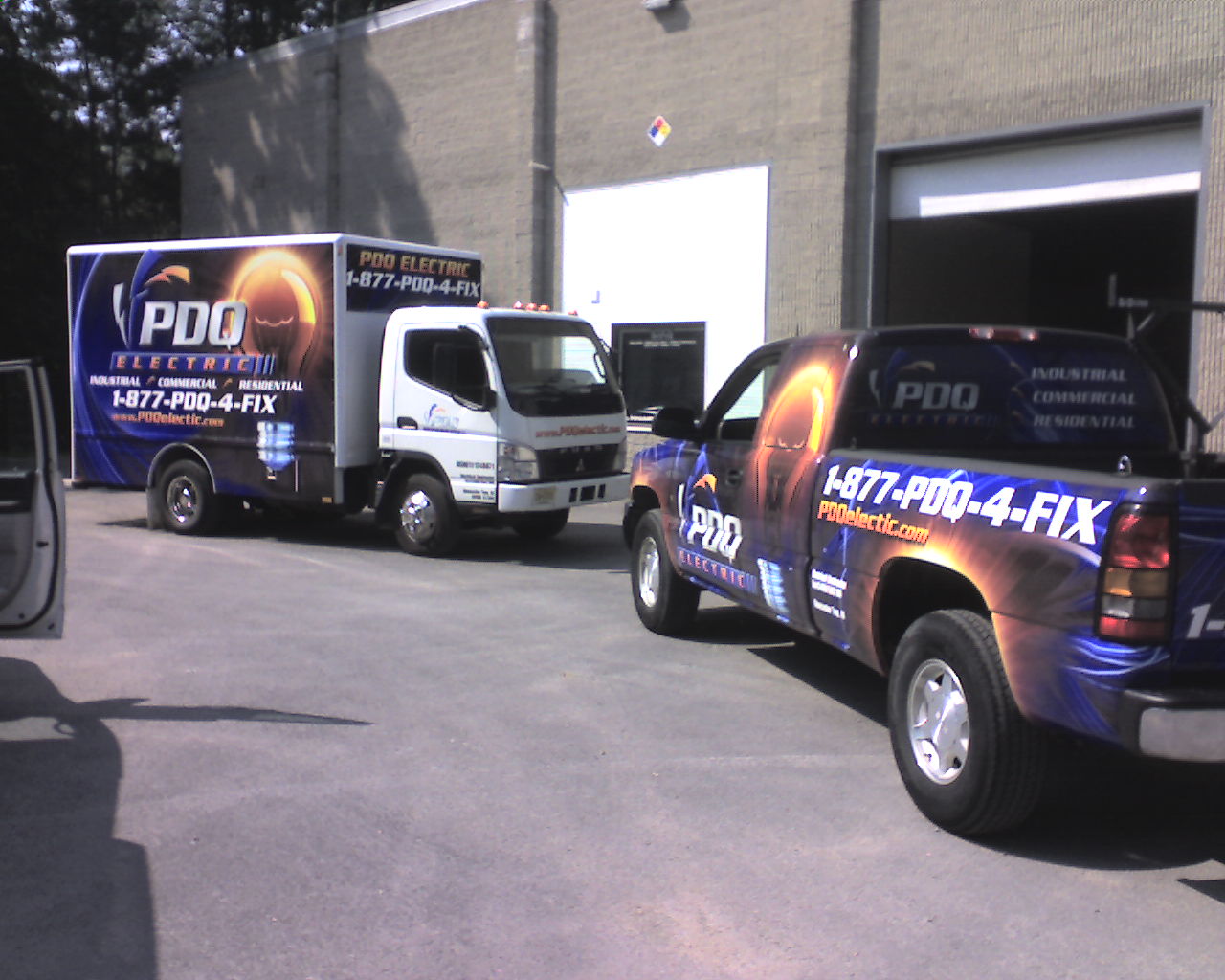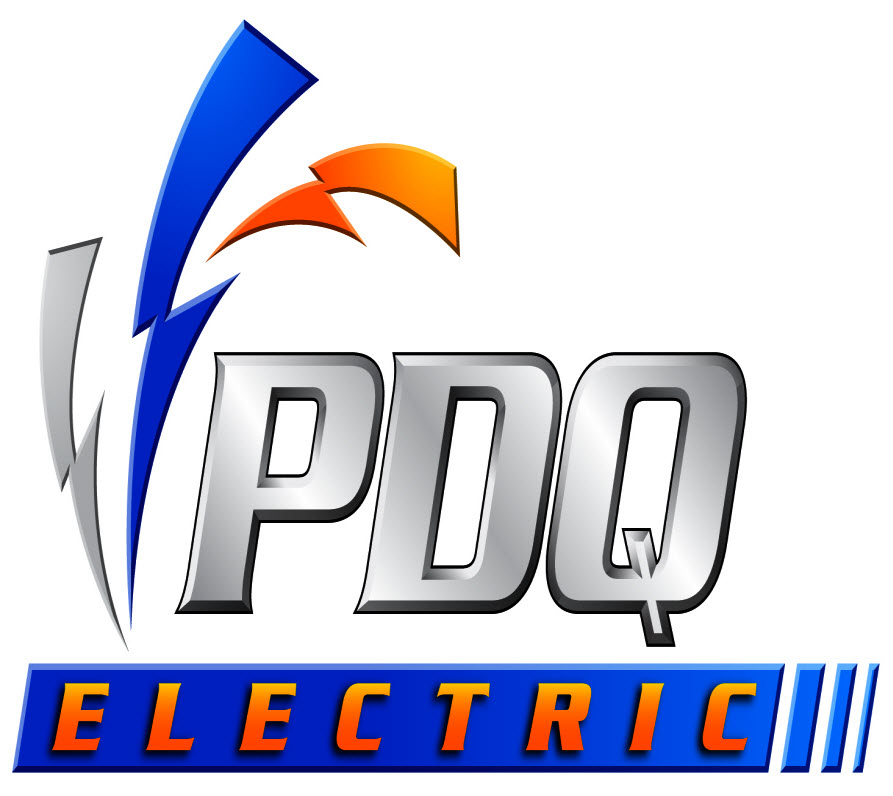 Industrial - Commercial
Industrial - Commercial  Electrical
Contractor
Electrical
Contractor 
PDQ Electric Corp
NJ, PA, DE, MD, NY, CT, DC, MA, RI
|

PDQIE - PDQ Industrial ElectricVision Sensors, Remote Imaging, Machine Vision (MV)Machine Vision (MV) is a Branch of Engineering that uses Computer Vision in the context of Manufacturing. The scope of MV is broad and a comprehensive definition is difficult to define. A generally accepted definition of Machine Vision is - the Analysis of Images to Extract Data for Controlling a Process or Activity. MV processes are targeted at Recognizing the actual objects in an image and assigning properties to those objects, which make them Controllable. APPLICATIONS METHODS Techniques used in MV include: thresholding (converting an image with gray tones to black and white), segmentation, blob extraction, pattern recognition, barcode reading, optical character recognition, gauging (measuring object dimensions), edge detection, and template matching (finding, matching, and/or counting specific patterns). MARKET Estimates of MV participation in industry is less than 20% of the applications for which it is potentially useful. MACHINE VISION TECHNOLOGIES
Fast, advanced camera-based visual inspections for thousands of applications Smart vision sensors from Datasensor could be the answer to your machine vision applications. Providing a quick solution for packaging lines, food and beverage industries, automotive and electronics plants, the SVS series combines sophisticated technology with an extremely simple configuration. PHOTO Datasensor SVS vision sensors don’t require hours of training to use. These sensors represent a straightforward solution for all vision control applications. With a fast frame rate of 60 fps (60 images per second), Ethernet communication, a teach button, 640 x 480 pixel resolution and 9 inspection tools, Datasensor SVS sensors are the best value for feature-packed smart vision sensors on the market. Inspection tools include: These sensors are a low-cost solution to machine vision providing accurate, reliable and unparalleled inspection. Ultra-compact, powerful and easy-to-use, SVS smart vision sensors work for a variety of applications and are available in two product lines: • SVS1 models guarantee the quickest and easiest setup via hand-held configurator • SVS2 models can be connected to a PC and offer multiple controls PPT Vision Sentinel Mold Protection Solution The SENTINEL offers the manufacturing industry a superior turn-key vision inspection solution to protect mold processes and tooling by detecting errors in real-time, then shutting down production and alerting operators before damages occur. Initially released in the United States in November 2008, the SENTINEL’s superior protection capabilities can now be utilized in molding applications worldwide. PHOTO PPT Vision The SENTINEL Mold Protection Solution was unveiled in early April to the global molding industry at the Southern China Plastics and Mold Show in Shenzhen, China. Upcoming plastic and molding industry events showcasing the SENTINEL Mold Protection Solution have additionally been scheduled in the United States and England. The SENTINEL’s global introduction is also taking place throughout Europe and North America. Product Seminars are being scheduled in England, Ireland, Germany, France, Canada and the United States. These seminars cover a variety of topics including typical machine vision applications, software tools available and how they are used in common inspection scenarios, cost to deploy machine vision projects, as well as integration, support and training options. The PPT VISION SENTINEL supports up to four cameras. Each camera provides users the ability to configure up to five mold inspection stages, including the inspection of mold flash, short shot, part ejection, pin retraction, insert position verification and more. Software panels, currently available in English and Chinese, are preconfigured for mold protection applications; users simply point-and-click to select the desired inspection options before putting the system online. SENTINEL is available in any IMPACT hardware platform, including right-angle, inline and remote camera options. IMPACT cameras are available in 17 models, covering a full range of processing power and resolutions from 640 x 480 to 1600 x 1200 pixels | |
(877) 737-4349 (Toll Free)
(877) PDQ-4-FIX (Toll
Free)
(856) 625-6969 (Text
Messaging)
PDQ ia an Acronym for "Pretty Damn Quick"
|
PDQIE, www.PDQIE.com, info@PDQIE.com, quote@PDQIE.com, Ryan@PDQIE.com, PDQ Industrial Electric, www.PDQIndustrialElectric.com, info@PDQIndustrialElectric.com, quote@PDQIndustrialElectric.com, Ryan@PDQIndustrialElectric.com are marketing tools of PDQ Electric Corp, a NJ Licensed Electrical Contractor. Reddy Kilowatt® is a Registered Trademark of Northern States Power Company. The information on this website is believed to be reliable, but we cannot guarantee that information will be accurate, complete and current at all times and should be reaffirmed by a licensed professional before relying on it. PDQIE will from time to time revise information, products and services described in-on this Website, and reserves the right to make such changes without notice. Use of this Website is entirely at your risk. Materials and information in this Website (including text, graphics, and functionality) are presented without express or implied warranties of any kind and are provided "as is". It is your responsibility to evaluate the accuracy, completeness and usefulness of any opinions, advice, services and information provided.